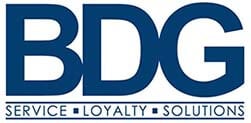With the purchase of real property come the interests and benefits of ownership. However, restrictive covenants are legal agreements that can alter the use, value and sustainability of an investment.
Whether a restrictive covenant affects a corporation’s inherent rights in positive or negative ways depends on the specific stipulations of the agreement.
Use
Restrictive covenants often dictate how a company can use its land. For example, a covenant may forbid mining or logging. When choosing a property, corporations must ensure that their intended use aligns with any covenants to avoid potential legal issues.
Value
Restrictive covenants also affect property values. For example, land situated in an industrial park with covenants that promote eco-friendly practices may command a higher market value due to various sustainability initiatives. Conversely, properties subject to covenants that restrict certain activities might have reduced value.
Development
Restrictive covenants might dictate the type of structures a company can erect. Land development of nonresidential property has already seen a revenue decrease of 5% in 2023, and covenant restrictions may further limit the opportunities to clear land for building.
Maintenance
Some legal agreements require strict maintenance schedules. Failing to meet these requirements can lead to fines, legal challenges and a decrease in the investment’s value.
Expansion
Expanding operations on real property may require corporations to secure consent from relevant authorities. It is necessary to understand whether expansion aligns with existing covenants to avoid potential obstacles and conflicts during the expansion process.
Corporations should consider the long-term implications of restrictive covenants on their real property. These covenants can endure for many years, influencing the holding’s value and usage for generations.

